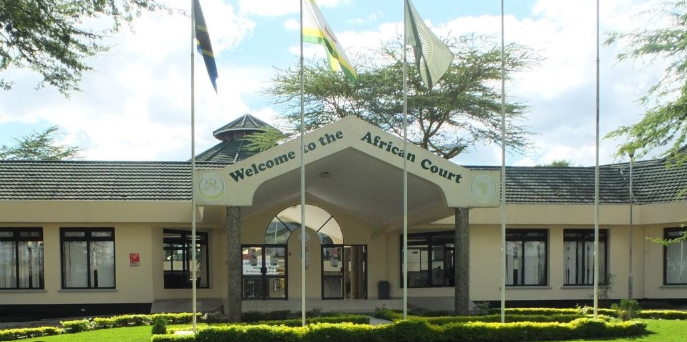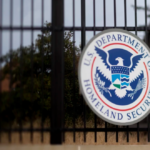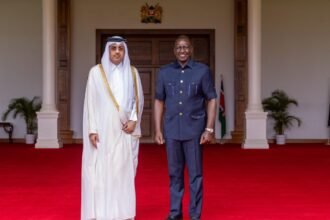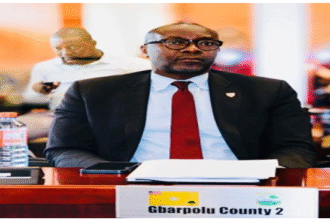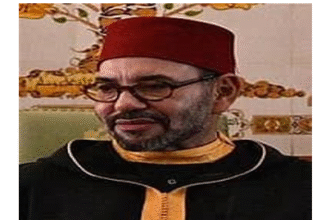By Daniel Niyongabo
Arusha, Tanzania – The African Climate Platform (ACP), a coalition of African civil society groups, submitted a landmark petition to the African Court on Human and Peoples’ Rights on Friday, demanding climate justice and intergenerational equity be central to regional and global climate decision-making. The petition, backed by partners including Resilient40, Natural Justice, the Environmental Lawyer Collective for Africa, and the Pan African Lawyers Union (PALU), urges all Africans to unite behind the cause.
The move follows a crucial gathering in Arusha, Tanzania, where environmental lawyers, climate advocates, Indigenous leaders, women’s rights campaigners, and youth activists from across Africa spent several days finalizing the petition. The initiative represents a unified continental response to the escalating climate emergency, which disproportionately impacts Africa’s most vulnerable communities.
The petition outlines key legal and ethical priorities, including the establishment of legal standards for climate adaptation, resilience, and addressing loss and damage. It also emphasizes the protection of Indigenous peoples, women, youth, and environmental defenders, and demands accountability for multinational corporations and historic polluters.
According to a copy of the petition, the ACP further seeks to promote a just and equitable energy transition, demand decolonized natural resource governance, and ensure zero tolerance for reprisals against activists and communities defending their environment.
Legal experts are hailing the petition as a pivotal moment for environmental justice on the continent, marking the first time the African Court’s advisory jurisdiction will be used to directly confront the climate crisis. Advocates across the continent and globally are calling it a transformative shift in Africa’s legal landscape.
During a virtual news conference held before the petition submission, representatives from across Africa shared compelling testimonies highlighting the human cost of the climate crisis, further emphasizing the petition’s significance.
“Africa, which contributes only a small fraction of global greenhouse gas emissions, is facing some of the most severe consequences of climate change,” stated Mr. Alfred Brownell, Lead Campaigner of the African Climate Platform. He insisted that Africa must be treated as a key partner in finding climate solutions, not just a victim, adding, “Africans continue to suffer as a result of climate change and its impact on her people.”
Mr. Brownell described the petition as “a heartfelt plea for justice and a call to action to protect the rights and dignity of millions of Africans whose lives are being upended by environmental devastation.” He called on African leaders to take decisive action in seeking climate justice and applauded the contributions of African legal experts, community members, youth leaders, and scientists.
The petition is firmly rooted in key regional legal frameworks, including the African Charter on Human and Peoples’ Rights, the Maputo Protocol, the Kampala Convention, and the African Charter on the Rights and Welfare of the Child. It seeks judicial clarification on African states’ responsibilities in safeguarding rights to life, health, housing, food, water, and a healthy environment in the face of climate change.
Egyptian activist Ahmad Abdallah painted a stark picture of North Africa’s reality: “North Africa is already witnessing the harsh realities of water scarcity, displacement, and economic turmoil. This is not a future crisis, it’s unfolding now.”
Lucien Limacher of Natural Justice highlighted the dire situation in Southern Africa, stating, “Southern Africa is reeling from its worst drought in a century, with over 61 million people affected. Women and girls are disproportionately burdened, facing interrupted education and increased exposure to gender-based violence.”
Peter Quaqua of Liberia’s MRU CSO Platform warned of collapsing cocoa yields and record-breaking heat threatening livelihoods and economies in West Africa, while Dorcas Sikujua Faida from the Democratic Republic of Congo cautioned about a “triple crisis of flooding, drought, and conflict” overwhelming fragile states and endangering millions of lives.
“The climate crisis magnifies long-standing gender inequalities,” stated Shahinaz Adel, emphasizing the disproportionate burden on women. Namibian artist and influencer Inna Maria Shikongo reinforced this, saying, “We must confront the climate injustices experienced daily by women and youth across Africa.”
Madam Agnes Kabujuni of the Minority Rights Group underscored the vulnerability of Indigenous peoples, who hold vital knowledge for climate resilience despite contributing the least to global emissions.
Madam June Cynthia Okelo, Economic Governance Officer at PALU, concluded with a powerful statement: “Africa is not a shock absorber for polluters. This is a human rights emergency. It is time for courts to take a stand.”
Organizers emphasize that the petition represents more than just legal action; it is a powerful expression of grassroots solidarity and a bold step towards redefining climate governance across the continent.


